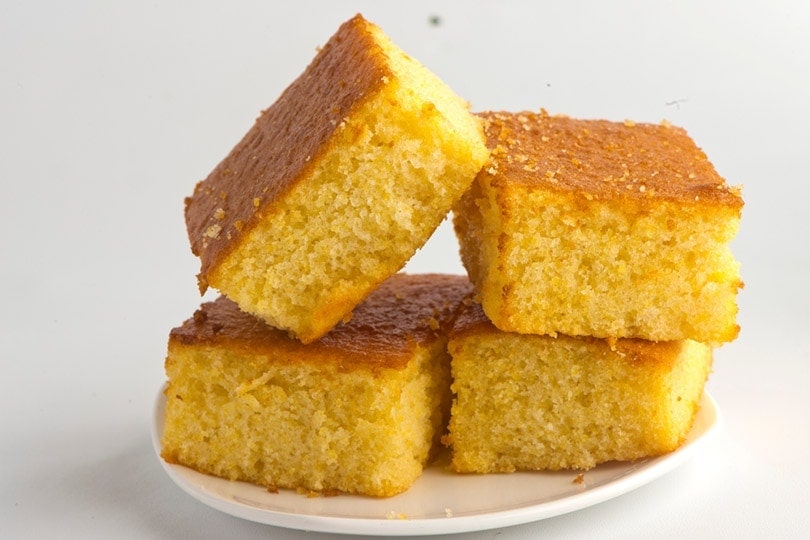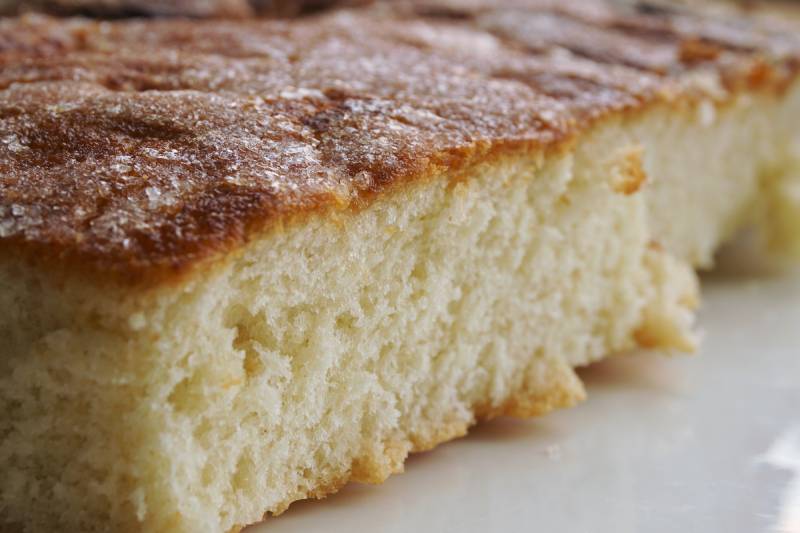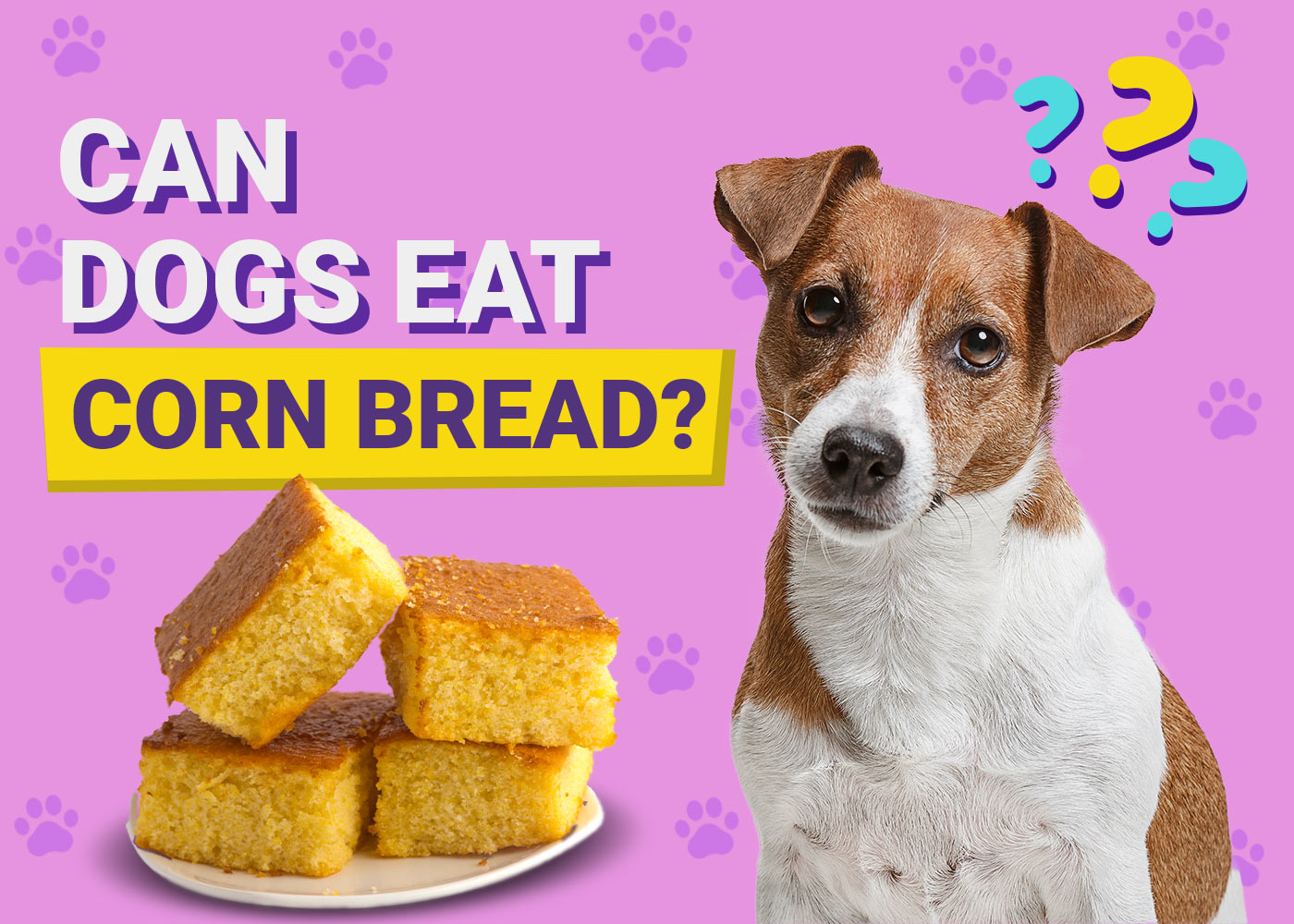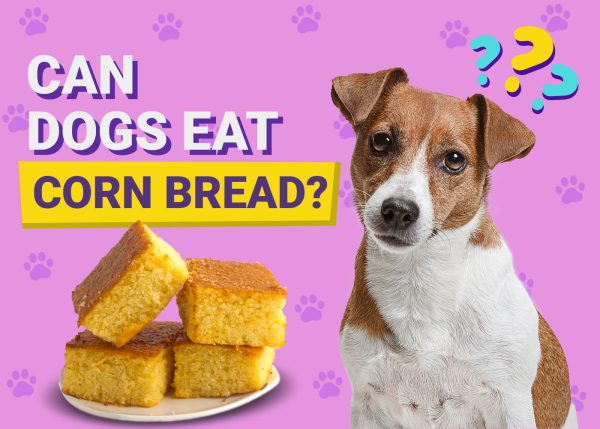During dinner, your dog may stand near you and beg for table scraps, but some food is unhealthy and hazardous to canines. Cornbread seems harmless enough, and it is generally safe to serve. Dogs can enjoy a little cornbread occasionally, but it depends on the ingredients involved. So, let’s examine when it’s safe to share cornbread with your dog and when it’s a much better idea to serve a more dog-friendly treat.
Is Cornbread Harmful to Dogs?
Moderation is vital when it comes to feeding your dog cornbread. Cornbread is tasty, but it doesn’t provide much in the way of nutrition. Although it isn’t a toxic food, it isn’t one you want as a staple part of your dog’s diet.
The ingredients in cornbread differ depending on which brand you get or the recipe you follow. Some ingredients might fall into the dangerous category, and the cornbread made with them should never be shared with your dog.
Examples of ingredients your dog should avoid include but aren’t limited to:
- Butter
- Corn kernels
- Crumbled sausage
- Garlic
- Green chilis
- Onions
- Pepperoni
- Scallions
- Spicy pepper
You should also be mindful of adding too much sugar to your cornbread. Excess salt or sugar is common in store-bought cornbread and is not recommended for our pets.

Allergies and Sensitivities
The primary ingredient in cornbread is, unsurprisingly, corn, which is a grain. Grains, including corn, are a possible but uncommon cause of food allergy in dogs.
- Deteriorating coat condition
- Diarrhea
- Itchy, flaking skin
- Stomach pain
- Vomiting
- Weight loss or failure to gain weight
While it’s perfectly safe for most dogs to eat grains, you should of course avoid them if your dog has a grain allergy. There are several grain-free meals and treats you can safely feed to your dog.
Is Cornbread Good for Your Dog?
Cornbread might not be harmful, but that doesn’t mean it’s good for your dog. When sharing it, it’s essential to use it as a treat and not make it a part of your dog’s regular diet. As long as your dog has no allergies or sensitivities, the occasional piece of cornbread won’t harm them.
However, if you notice diarrhea, vomiting, a rash, or itchy skin, it could indicate an adverse reaction to an ingredient or a potential allergy. If any of these signs develop, contact your veterinarian.
What Happens if Your Dog Eats Lots of Cornbread?
Dogs are very good at finding food and helping themselves, and sometimes, the food is harmful or shouldn’t be eaten in large quantities. If your dog eats a lot of cornbread, they should be fine, as long as it doesn’t contain any of the harmful ingredients listed above (there are others but these are the most common ones!). You might notice signs of gastrointestinal distress like diarrhea, vomiting, lack of appetite, or constant gulping. If your dog becomes lethargic or its gastrointestinal signs don’t start improving over the course of 24 hours, you should see your vet.
If your dog eats cornbread containing a toxic ingredient, you must take them to the vet immediately. Make sure you record what was eaten, how much, and at what time so the vet has all the facts before coming up with a treatment plan.
Even if your dog eats a small amount, keep an eye out for adverse reactions and contact your vet if you’re worried.
PangoVet. It’s an online service where you can <b>talk to a vet online</b> and get the personalized advice you need for your pet — all at an affordable price!
</p>
<div class="su-button-center"><a href=https://www.dogster.com/dog-nutrition/"https://pangovet.com/?utm_source=dogster&utm_medium=article&utm_campaign=dog_eat_drink%22 class="su-button su-button-style-default" style="color:#FFFFFF;background-color:#FF6600;border-color:#cc5200;border-radius:9px;-moz-border-radius:9px;-webkit-border-radius:9px" target="_blank" rel="nofollow"><span style="color:#FFFFFF;padding:0px 24px;font-size:18px;line-height:36px;border-color:#ff944d;border-radius:9px;-moz-border-radius:9px;-webkit-border-radius:9px;text-shadow:none;-moz-text-shadow:none;-webkit-text-shadow:none"> Click to Speak With a Vet</span></a></div></div></div>"}" data-sheets-userformat="{"2":513,"3":{"1":0},"12":0}"> If you need to speak with a vet but can’t get to one, head over to PangoVet. It’s an online service where you can talk to a vet online and get the personalized advice you need for your pet — all at an affordable price!

Frequently Asked Questions (FAQ)
Can Dogs Be Allergic to Cornmeal?
Cornbread is primarily composed of cornmeal, and the simplest recipes include only cornmeal, water, and salt. So, of course, if your dog has an allergy or sensitivity to corn, they will be allergic to cornmeal. Remember, however, that most allergies in dogs are to animal proteins such as chicken, turkey or beef.
While cornmeal has been used in dog food for years, it’s not naturally part of a dog’s diet, but it does contain some useful nutrients such as fiber and linoleic acid (an essential fatty acid). Most dogs are fine with cornmeal, and it’s safe for them to eat.
Can Dogs Eat Cornbread Dressing?
Dressing and stuffing are generally the same and aren’t safe for dogs to eat. As mentioned, ingredients like onions and garlic are unsuitable for dogs, and they’re often included in dressing and stuffing.
Can Your Dog Eat Store-Bought Cornbread?
Store-bought cornbread will commonly add preservatives and additives, even if it mentions that it is a “traditional recipe.” You might also find that it contains extra sugar, salt, or additional ingredients that are toxic to dogs, such as onions or garlic. If you are going to buy something from the store for your dog, make sure you check the ingredient list thoroughly.

Conclusion
Dogs can occasionally enjoy cornbread as a treat. However, check the ingredients before sharing it since some can be toxic to dogs. If your dog suffers from allergies or sensitivities, it’s best to avoid serving cornbread. While cornbread isn’t harmful, it isn’t healthy and shouldn’t become a regular part of your dog’s diet.
Featured Image Credit: FotoHelin, Shutterstock












